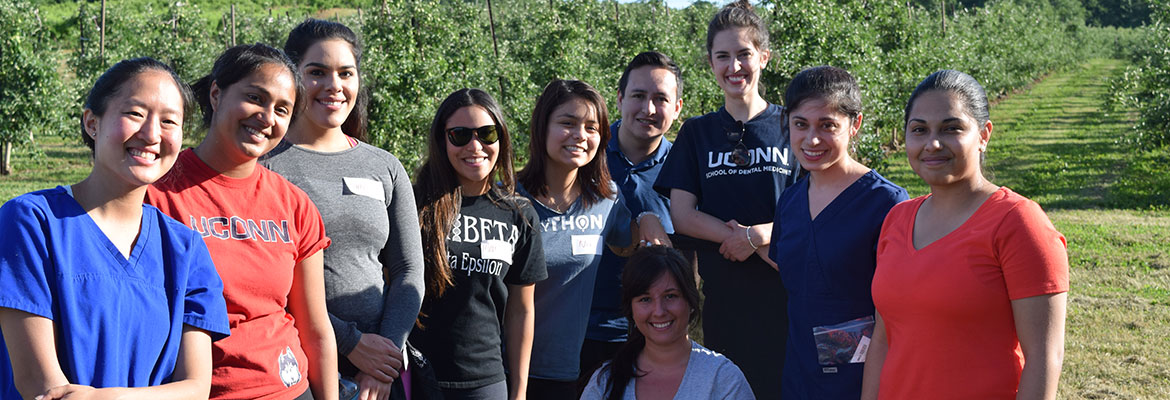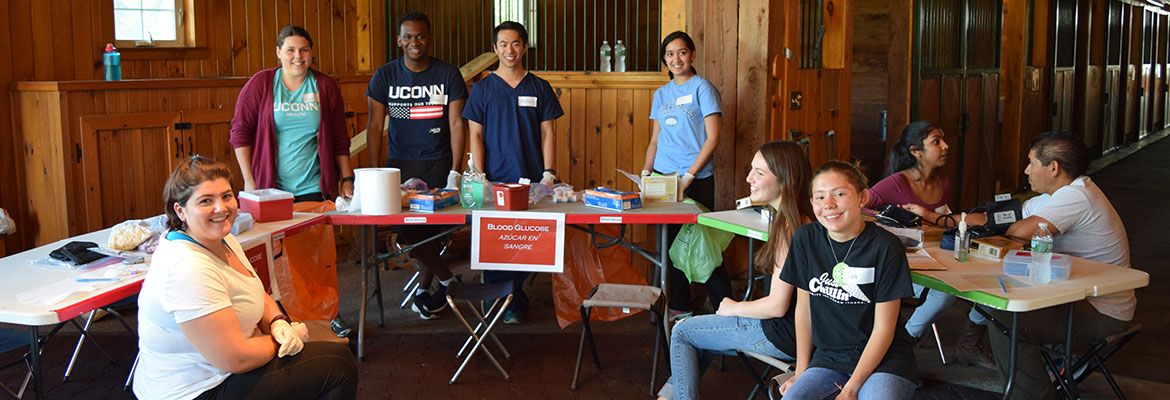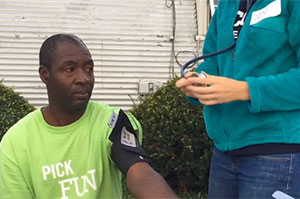 Photo By Spencer Platt
Photo By Spencer Platt Photo By Spencer Platt
Photo By Spencer Platt

About the Clinics
Migrant farm workers are among the most economically disadvantaged and most medically vulnerable groups in the United States having little, if any, access to health care or medication. In addition to barriers to access to health care that many citizens meet like affordable health insurance, language barriers, and lack of transportation, migrant workers also experience additional barriers such as fear of deportation, loss or garnished wages, and being dismissed or not invited back to work by the employer due to missed work or health issues. A coalition of local organizations, along with the UConn, has formed a network to overcome these barriers and attend to the health care needs of migrant and seasonal farm workers.
UConn and the Connecticut Area Health Education Centers (CT AHEC) Program strive to help migrant farm workers overcome these barriers by conducting medical and dental screenings on site at farm worker barracks free of charge. The UConn Migrant Farm Worker Clinics operate annually from June to October offering diagnostic and treatment options for a variety of conditions, both acute and chronic. For over a decade, the UConn Migrant Farm Worker Clinics have annually provided between 300 and 600 migrant farm workers with primary care screenings, oral health screenings, distribution of medications for mild and self-limited conditions, as well as preventive health education.
To improve access to health care and provide a coordinated and continuous approach to care, the UConn clinic works closely with the members of the Connecticut Migrant Health Network which include outreach workers at the Department of Labor and community health centers. These outreach workers provide transportation to follow-up health services at participating community health centers. These follow up health services are funded by a federal voucher program based on the 1962 Migrant Health Act, Section 329 which is distributed via Connecticut River Valley Farm Worker Health Program.




